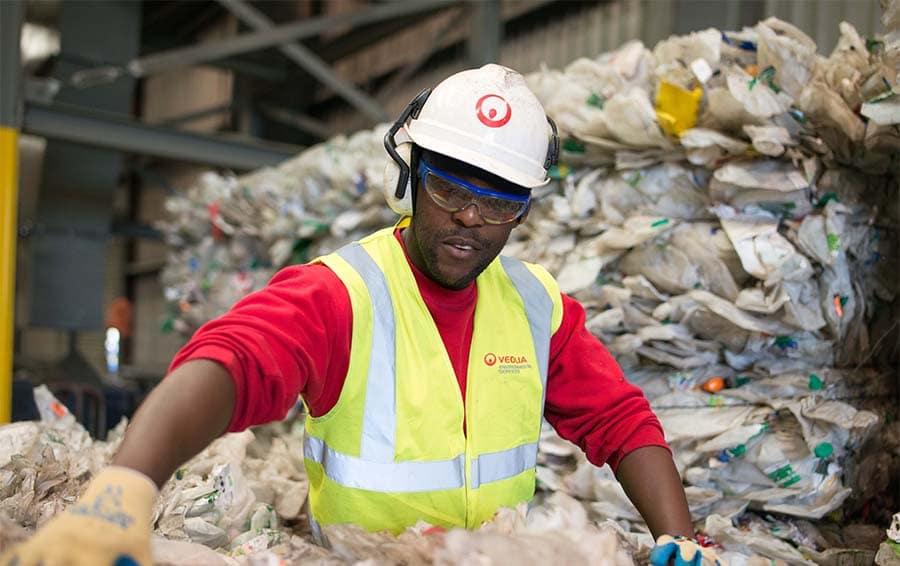Leading resource management company, Veolia, is set to make a major increase to the amount of recycled plastic used in milk bottles, and close the UK to UK recycling loop for the UK dairy industry. The project will see over 100 million new recycled bottles created each year by ensuring that they are produced, distributed, consumed, collected, sorted, washed & reprocessed and made into bottles in the UK.
Every year three hundred million milk bottles arrive at Veolia’s plastic recycling facilities. After being collected and compressed into bales, the bottles are ground into flakes. They are washed several times to remove label residue and clean the plastic. Infrared sorters then separate the transparent HDPE body of the bottle from the cap, which will also be recycled and the transparent HDPE is then formed into premium grade pellets ready for conversion into new bottles.
As recycling these into new containers uses up to 75% less energy than using virgin material the process will lower carbon, and support the UK Dairy Roadmap initiative. If all plastic were recycled this could result in annual savings of 30 to 150 million tonnes of CO2 and can both curb the growing life-cycle GHG emissions from plastics, and also prevent plastics from entering the marine environment.
The new agreement is also an important step towards achieving the goals set by the UK Plastics Pact. Created in April 2018 to fight plastic pollution, this collaborative initiative lays the foundation for a circular plastics economy and its members include 40 leading brands representing the entire plastics value chain, UK government institutions and NGOs. The Pact has three main goals for 2025: 100% of plastic packaging will be reusable, recyclable or biodegradable; 70% will be efficiently recycled or composted; and all plastic packaging produced will contain 30% recycled material.
Commenting on the operations Tim Duret, Director of Sustainable Technology at Veolia UK and Ireland said:
” This marks another significant step towards building a circular economy and a greener, lower carbon future. To kickstart the green recovery, the environment and climate change must be priorities and by capturing, converting and re using this material in the UK we can deliver a local recycling loop and support the sustainability goals of the UK dairy industry.”
Key to limiting the environmental impact and carbon emissions is effective waste management to treat packaging at its end of life, and recycling always wins over virgin production on all environmental indicators. For plastics, it has been shown that recycling saves between 30% and 80% of the carbon emissions that virgin plastic processing and manufacturing generate.






